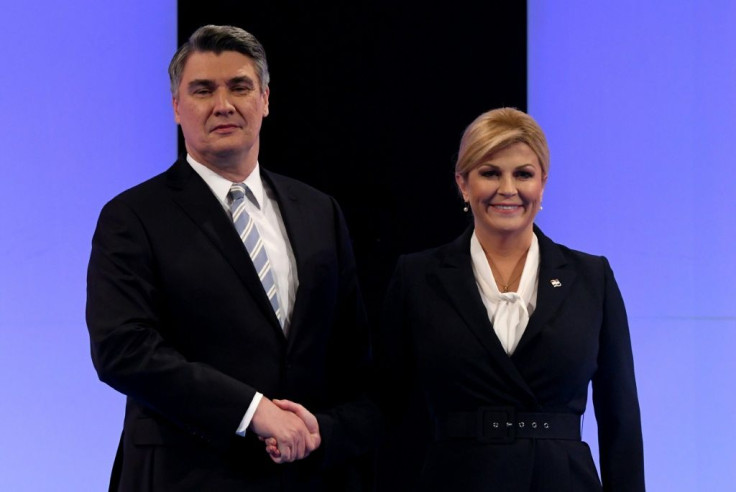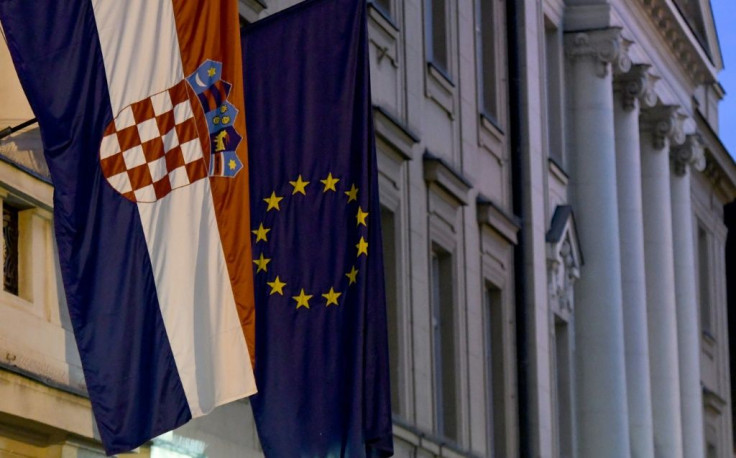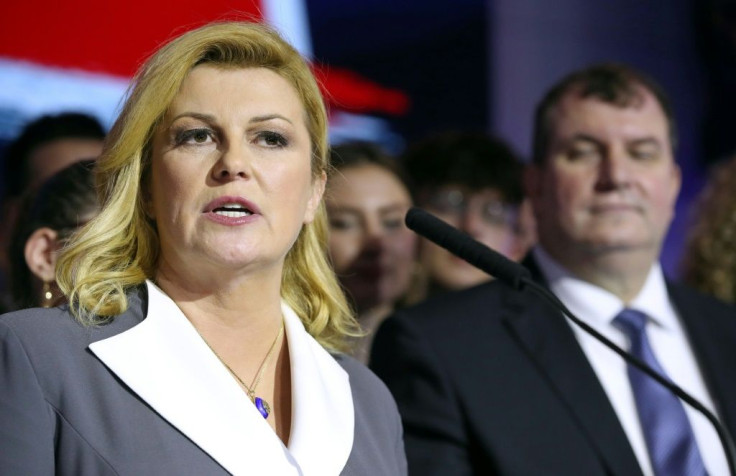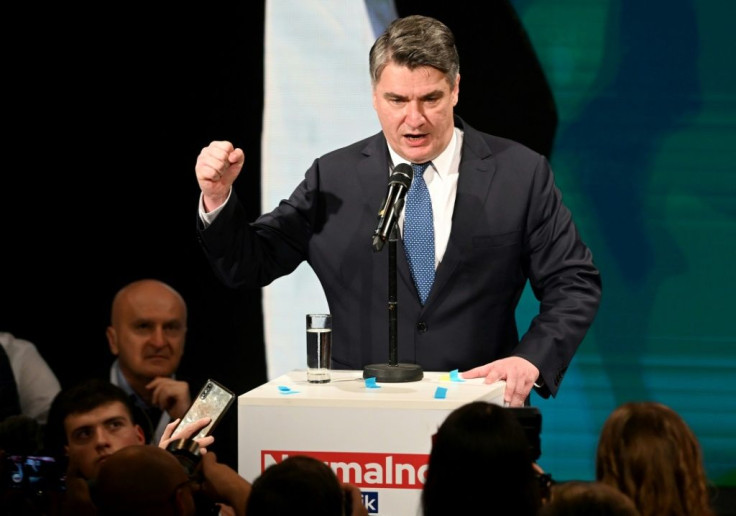Croatia President Faces Leftist Challenge In Uncertain Vote

Croatia elects a new president Sunday in an uncertain vote where the conservative incumbent -- trying to unite a fractured right wing -- faces a very serious challenge from a former leftist prime minister.
Some 3.8 million people are eligible to vote in a poll that is being held just days after Croatia took over European Union's helm for a six-month period that will be dominated by the issues of Brexit and the bloc's enlargement.
At the same time, the EU's newest member is struggling with an emigration exodus, corruption and a lacklustre economy at home.
Centre-right incumbent, Kolinda Grabar-Kitarovic, is campaigning on a "real Croatia" ticket, while her rival Zoran Milanovic, a former Social Democratic premier, promises a "normal" liberal democracy of equal citizens.
The outcome of the vote for the largely ceremonial post is uncertain, with the latest survey by Ipsos agency giving Milanovic a three-percentage-point lead over Grabar-Kitarovic.
The latter, backed by the ruling HDZ party, will have to lure back hardliners who voted for a nationalist folk singer in the election's first round in December.
Dominating in cities, Milanovic led the first round with around a third of the vote, thanks in part to that split among the right-wingers.

Analysts said the first-round results showed an increase in support for hardliners, a trend seen in other European countries such as Poland or Hungary.

If Grabar-Kitarovic fails to win the presidency, it would deal a heavy blow to the HDZ, whose moderate Prime Minister Andrej Plenkovic faces parliamentary elections later this year.
"I am a Croatia that unifies," Grabar-Kitarovic, 51, said during a TV election debate with her rival.
Unity, patriotism and references to the 1990s independence war that remains an emotive issue, were the key points her re-election bid.
"We should come together as in 1990", before the country declared independence from Yugoslavia, Croatia's first female president told her supporters in Zagreb.

Meanwhile, Milanovic insisted that the "wars are over" and Croatia should now fight for its place in Europe.
"There is no 'real Croatia' ... rather a Croatian republic for all, equal citizens," the 53-year-old told a campaign rally in his native Zagreb.
Presenting herself as the "woman of the people" with humble farming roots, Grabar-Kitarovic is well known for stunts such as singing in public which her critics deride as embarrassing.
She has also come under fire for downplaying the crimes committed by Croatia's World War II pro-Nazi regime.
Meanwhile, Milanovic is trying to make a political comeback and throw off a reputation as arrogant and elitist.
Premier from 2011 until 2016, he was welcomed at the time as a bright, young politician clean of the corruption tainting the rival HDZ.
But the excitement waned after his government failed to push through much-needed reforms.
The ruling HDZ hopes to keep Grabar-Kitarovic in office during the country's EU presidency where four main issues are likely to dominate -- the bloc's relationship with the UK after Brexit; the membership bids of Western Balkan states; climate change; and the bloc's budget framework for the next decade.
Croatia joined the EU in 2013, but its economy, strongly relying on tourism on its Adriatic coast, remains one of the bloc's weakest.
EU's open borders also accelerated the emigration exodus for better pay in wealthier member states.
"Our youngsters are leaving, that is the biggest problem" while politicians are only "insulting each other", Stjepan Golub, a 70-year-old man from Zagreb, told AFP.
The two rival candidates, both former diplomats, argued mainly over internal political issues and old grievances from the past.
Polling stations open at 0600 GMT and close 12 hours later, with the first results expected around 1900 GMT.
© Copyright AFP 2024. All rights reserved.





















